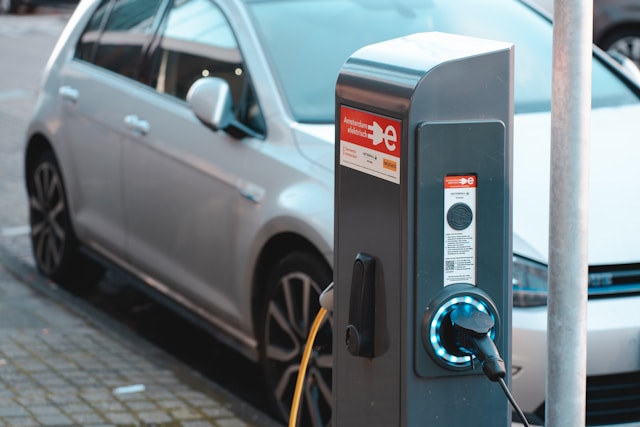Oracle Share Price Analysis: Bearish Phase, Valuation Signals and Bullish Reversal Outlook
$154.97
04 Feb 2026, 11:45


The slowdown in electric car production is attributed to a combination of factors, including soft demand for electric vehicles in Europe and the need for UK manufacturers to retool factories for new electric vehicle models. Mike Hawes, CEO of the SMMT, voiced concerns about the industry's future, stating that significant investments in electric car factories and new technologies are under pressure. He emphasized that global EV demand has slowed, and UK manufacturers face tight deadlines to transition to electric vehicles amid insufficient consumer incentives.
Despite the drop in EV production, sales of electric cars in the UK have seen an increase. In October, one in five new car registrations was for an electric vehicle. However, industry experts believe this surge may be driven by heavy discounts, which may not be sustainable in the long term.
The UK government has set ambitious zero-emission vehicle (ZEV) targets for carmakers ahead of a 2030 ban on the sale of new petrol and diesel cars. By 2024, 22% of carmakers' sales must be electric, and 10% of van sales must also be electric. Companies that fail to meet these targets face hefty fines of £15,000 per vehicle, though they can purchase credits from companies that exceed their targets.
In response to the pressures on the car industry, Business Secretary Jonathan Reynolds announced a "fast-track" consultation on how these ZEV targets will be enforced. He reaffirmed Labour's commitment to phasing out petrol and diesel cars by 2030. However, the transition is already proving difficult for manufacturers, as demonstrated by recent closures and job cuts within the industry.
Stellantis, the company behind Vauxhall, announced the closure of its van factory in Luton, putting 1,100 jobs at risk. This decision is partly due to the pressure of UK regulations pushing the shift to electric vehicles. Mark Noble, a former Stellantis executive, criticized the ZEV mandate and Brexit-related issues, arguing that the government needed to ease the regulatory burden on manufacturers.
Similarly, Ford revealed plans to cut 800 jobs in the UK over the next three years, citing tough market conditions, including increased competition and lower EV demand.
Manufacturers have urged the government to provide more financial incentives to boost electric vehicle sales. A government spokesperson confirmed that the UK government understands the need for stability and has committed to investing £2 billion in car manufacturing and more than £300 million in supporting the adoption of electric vehicles.
However, one of the key challenges for mass EV adoption remains the lack of charging infrastructure. As one government advisor put it, "If everyone bought an electric car tomorrow, I don’t see how we could charge them." Currently, there are over 71,000 public charging points in the UK, with new charging stations being installed at a rate of one every 25 minutes. Despite this progress, the pace of infrastructure development needs to accelerate to keep up with increasing EV sales.
Vicky Read, CEO of Charge UK, the EV charging industry group, stated that while charging stations are being installed rapidly, weakening the electric vehicle targets would be a mistake. She emphasized that meeting these targets is critical for ensuring long-term growth in the sector.
James Richardson, a government advisor, warned that traditional car manufacturers in the UK risk falling behind if they do not swiftly adapt to the electric vehicle market. He stated that the sales targets are necessary to push carmakers to innovate and transition quickly, or they could risk losing market share to newer competitors.
Source: BBC.co.uk